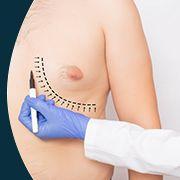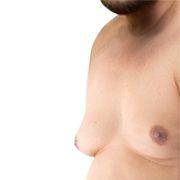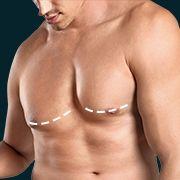Post Gynecomastia Surgery: Essential Aftercare Tips
In This Article
Post Gynecomastia Surgery: Essential Aftercare Tips
Alaka
Updated on February 06, 2024
Medically verified by Dr. Arya
Fact checked by Dr. Pournami

Cosmetic
5 min read
Aftercare plays an important role in ensuring a fast recovery and achieving proper results.
Are you someone who is considering getting gynecomastia surgery? Are you curious about the aftercare measures you should be aware of?
Wondering what you should do for a smooth recovery?
Mykare Health has got you covered! We will help you understand the importance of aftercare after gynecomastia surgery.
We will be providing some helpful tips about aftercare you should know of.
Importance Of Aftercare
-
Aftercare of gynecomastia surgery is as important as that of the surgery process. Aftercare plays a crucial role in achieving the best results and reducing risks. It provides a smooth recovery to the individual.
-
It is important to follow the aftercare instructions provided by the doctor post gynecomastia surgery.
-
Just like any other surgery, the patient may also experience some kind of pain, discomfort, swelling, or bruising.
-
Sticking to the recommended aftercare measures will help in reducing these complications.
-
Post surgery, the patients are often suggested to take prescribed medication on time and refrain from any physical activities for a while.
-
Proper aftercare helps in proper healing. You should keep the area clean to avoid any sort of infections.
-
Constantly monitoring for infection signs is crucial.
-
Follow up consultations are also important. It helps to analyze the progress of healing.
-
However, the recovery process can vary according to individuals.
-
The patient should be committed to initiate the surgery and aftercare successfully.
-
The doctor’s recommendations and medications should be properly followed. Follow up consultations should not be missed either.
-
Aftercare also includes emotional support. Patients can seek guidance or support for their emotional wellbeing as well.
Post Surgery Medications
After gynecomastia surgery, medications for reducing pain or irritation are often prescribed. It is an important part of the aftercare process.
-
Here’s what you should keep in mind:
-
The prescribed medications should be taken in the right dosage. It will help improve the overall recovery process.
-
Right dosage should be taken at specified time intervals.
-
Some medications may cause some side effects to the patients. If you develop any side effects, make sure to inform your doctor.
-
You may be advised to stop the medicine or the medications will be adjusted.
-
If there are any further adjustments needed in your medication patterns, the doctor will suggest it during your follow up consultations.
Physical Activities
-
Getting proper rest after the gynecomastia surgery is crucial. So, follow your doctor’s advice meticulously.
-
You will be recommended to refrain from any physical activities for a short period of time. It is to avoid any risks or complications.
-
The duration for complete rest may vary according to individual conditions.
-
It is important to follow the suggested rest period to have a smooth recovery.
-
Mostly, you can start light physical activities two weeks after the surgery. Progress to hard physical activities at a slow pace.
-
Most importantly, do activities according to the doctor’s suggestion.
-
Make sure you don’t overwork your body.
-
Avoid any kind of strain to your chest area. Wait until the incisions heal properly to progress to heavy workouts.
-
If any discomfort occurs, make the progress even slower. You can consult with your doctor for suggestions.
 9 min read
9 min readThe Advantages of Choosing Mykare Health for Gynecomastia Surgery
 6 min read
6 min readIdentifying The Ideal Age For Gynecomastia Surgery
 6 min read
6 min readPre and Post Gynecomastia Surgery: Essential Things to Know
Get a Callback Now
Dietary Considerations
The need for a balanced and nutrient rich diet is crucial when it comes to the proper healing process after gynecomastia surgery.
Proper diet is needed for tissue repairing and boosting your immune function. It helps in the overall recovery as well.
Here’s what to be mindful of:
-
Staying hydrated is equally important. Drink a lot of water.
-
It helps in removing the toxins from the body and maintains overall functions.
-
Dehydration may increase the chance of complications. It will slow down recovery.
-
Avoid sodium rich food, high sugar foods, spicy food, frozen food, alcohol, and caffeine after the surgery.
-
These will also negatively impact the healing process.
-
Your doctor will suggest a diet to follow post surgery. Make sure to follow the suggested diet.
-
The diet should include fruits, zinc, vitamin E and D rich foods, proteins, healthy fats, low fat dairy, and whole grains.
-
These foods will help in supporting the body in the healing process, providing a smooth recovery.
Wound Management
Cleaning the surgical area is important for a fast recovery and to avoid any possible infections. Clean the area regularly using a mild soap and water. Pat the area dry. Avoid rubbing harshly over the area. Always keep the area dry.
Follow the doctor’s instructions on how to take care of the wound area properly. Wear loose, comfortable clothing. Avoid clothing that can irritate the area. Do not apply any harsh substances in the area. Avoid direct sun exposure until the wound is healed.
Use proper and prescribed wound care products and maintain proper cleanliness. This will help in speeding up the recovery.
Signs Of Complications
During aftercare, there is a chance that you may develop any risks or complications. It is important that you monitor the recovery process carefully.
Look for any signs of complications and seek immediate medical care if you notice anything. Identifying the signs and acting quickly is also important for proper healing.
Here are some of the signs of complications to look out for.
-
Swelling
-
Bruising
-
Pain
-
Discomfort
-
Fluid buildup
-
Bleeding
-
Infections
-
Severe pain
-
Change in skin color
-
Breathing difficulty
Aftercare plays an important role in achieving the best results and reducing risks. It provides a smooth recovery to the individual after the surgery.
Some of the essential aftercare tips include post surgery medications, restriction of physical activities, dietary considerations, and wound management.
Common signs of complications post surgery include swelling, bruising, pain, discomfort, fluid buildup, bleeding, infections, severe pain, change in skin color, and breathing difficulty.
It is crucial to follow the instructions provided by the doctor thoroughly. Follow up consultations are also important to assess the progress of your recovery.
Source Links
Westlake Dermatology
Cruise Plastic Surgery



